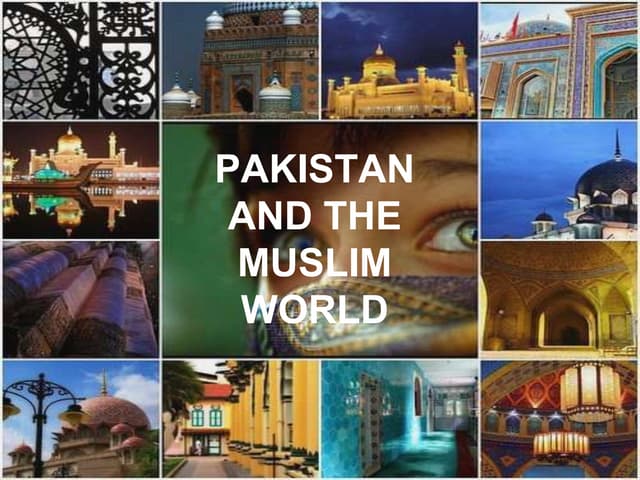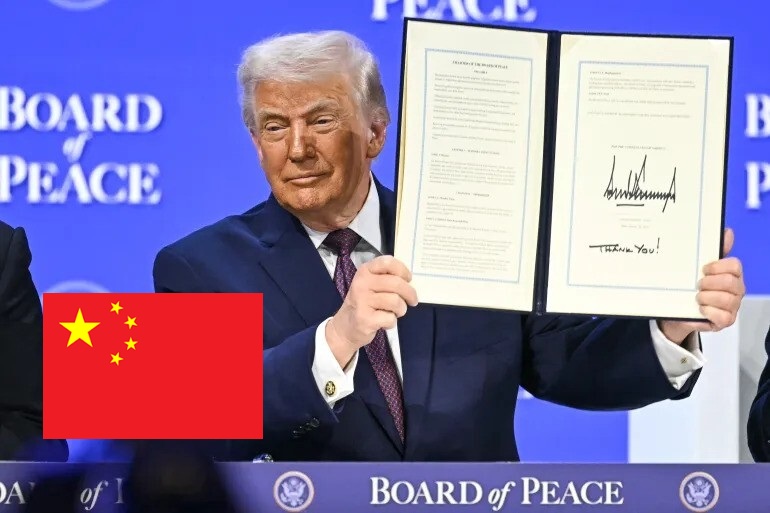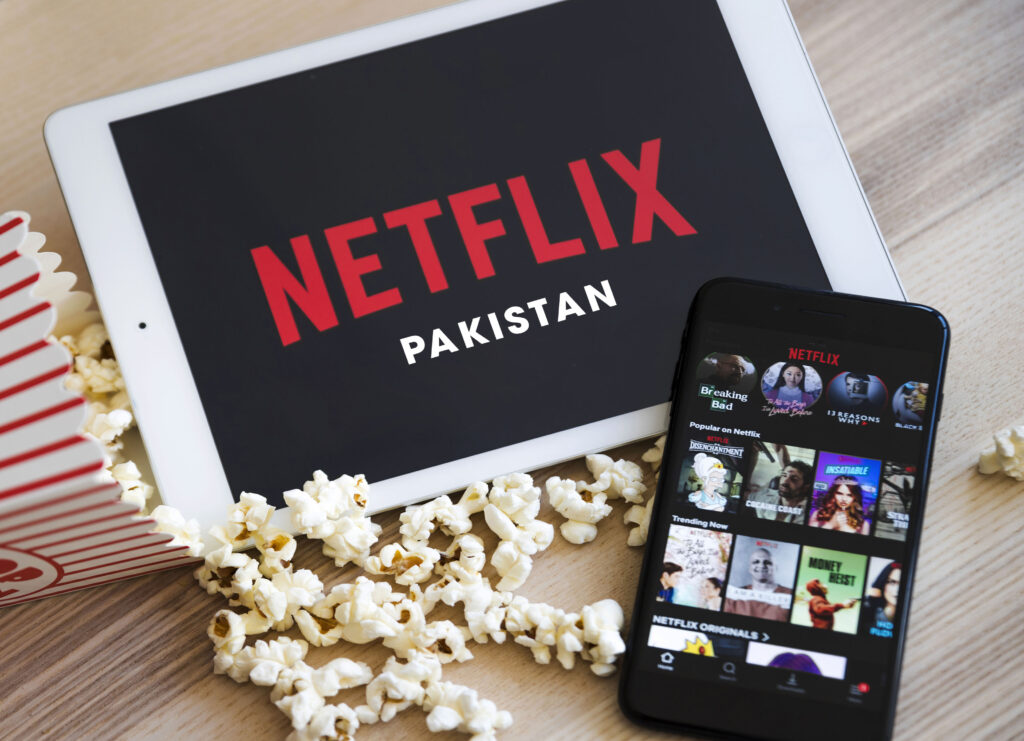Introduction: Pakistan’s Foundational Identity and Historical Link with the Muslim World
Few nations in modern history were created not from a shared geography or language but from an idea, as a need of a driving force whose leadership can unite Muslims around the globe and Pakistan is a rare example of such an ideologically founded state. Its creation in 1947 was driven by the belief of Muslims as a distinct nation. Muhammad Ali Jinnah, a Western-educated lawyer and head of the All-India Muslim League, guided the movement with political precision rather than religious dogma (Paracha).
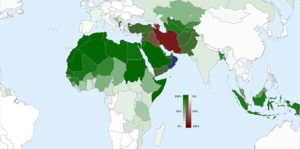
He envisioned a sovereign Muslim-majority state, not as a theocracy, but as a nation where Muslims could freely preserve their identity. Moreover, Islam during the independence struggle was primarily employed as a cultural and unifying identity marker, strengthening the case for Muslim nationhood. It was not used as a theological blueprint for an Islamic state (Paracha). Furthermore, Pakistan’s early leadership saw the country as a vanguard of Muslim unity, committed to supporting Islamic causes and fostering solidarity across borders.
Leadership Role of Pakistan in Conflict Mediation and Representation in Global Islamic Forums
Pakistan has played a central role in conflicts affecting Muslim-majority regions especially Afghanistan, Palestine, Kashmir and the Middle East. Since 1979, it has hosted over 4 million Afghan refugees, providing shelter and services. Under PM Imran Khan, the government emphasized,
“We will continue to facilitate the negotiation process by taking it in the right direction,”
urging global actors to avoid sanctions harming Afghans. Pakistan supported post-2021 evacuations with humanitarian air bridges and promotes Kashmir dialogue at the UN and OIC. It helped restore Iran-Saudi ties, continuing Bhutto-era unity efforts. With over 200,000 volunteers in Muslim-majority war zones, it is a major UN peacekeeping donor. Pakistan led the 2022 Islamophobia resolution at the UN and voices concerns on Palestine, Kashmir, and Rohingya within OIC and engages in ECO for Muslim trade (United Nations Peacekeeping; United Nations General Assembly; Ministry of Foreign Affairs).
Comparative Standing Among Major Muslim Powers: Turkey, Saudi Arabia and Iran
Pakistan is important because of its nuclear weapons, large population and location. However, it is less influential than Turkey, Saudi Arabia and Iran. It doesn’t have Turkey’s strong military, Saudi Arabia’s 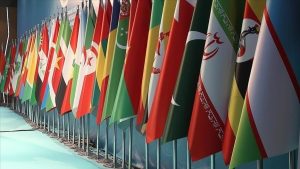 wealth or Iran’s religious influence. Sectarian divides also weaken Pakistan’s religious leadership compared to Saudi Arabia’s control of holy sites, Turkey’s Sunni ties, and Iran’s Shia role. Diplomatically, Pakistan often responds to events, while Turkey leads, Saudi Arabia uses its oil power and Iran builds anti-Western alliances.
wealth or Iran’s religious influence. Sectarian divides also weaken Pakistan’s religious leadership compared to Saudi Arabia’s control of holy sites, Turkey’s Sunni ties, and Iran’s Shia role. Diplomatically, Pakistan often responds to events, while Turkey leads, Saudi Arabia uses its oil power and Iran builds anti-Western alliances.
Pakistan’s future leadership depends on economic stability through CPEC, nuclear energy, and its youth population, but faces hurdles like 78% debt-to-GDP and political instability. Unlike Turkey’s defense industry, Saudi megaprojects, or Iran’s potential post-sanction revival, Pakistan must focus on niche roles such as mediation and Islamic finance.
Military and Nuclear Capability: Strategic Leverage in the Muslim World.
The only world country comprising largely of Muslims yet possessing nuclear arms, Pakistan lends it religious significance within the Muslim world. Pakistan has a deterrent capability especially considering  that it has around 560,000 active service men, a US $13 billion (3.1 percent GDP) defense budget as well as an estimate of having 160 nuclear warheads. It is one of the ten strongest militaries in the world based on the number of people. The main role of its Minimum Credible Deterrence doctrine is to support regional stability with respect to India. Although these abilities provide respect and deterrence but economic problems, poor diplomatic efforts and domestic political instability make military power of Pakistan more symbolic than leading.
that it has around 560,000 active service men, a US $13 billion (3.1 percent GDP) defense budget as well as an estimate of having 160 nuclear warheads. It is one of the ten strongest militaries in the world based on the number of people. The main role of its Minimum Credible Deterrence doctrine is to support regional stability with respect to India. Although these abilities provide respect and deterrence but economic problems, poor diplomatic efforts and domestic political instability make military power of Pakistan more symbolic than leading.
Economic Ties and Religious-Cultural Outreach:
Pakistan aspires to lead the Muslim world economically, but faces key strategic and internal challenges. It is building trade ties with Turkey ($5B target, 24 agreements), Qatar (LNG + $3B investment), Iran ($10B trade target), and China (CPEC expansion). Lahore will host the OIC Trade Fair 2025 to promote intra-Muslim trade.
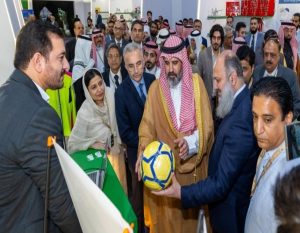
However, external pressures like the IMEC Corridor, IMF reliance, and infrastructure issues affect progress. Internally, political instability, high debt, low exports and weak governance slow development. Also, religious and cultural outreach by Pakistan is an important determinant of its identity and ambitions in becoming a leader in the Muslim world. Due to its ideology of a homeland to Muslims, Pakistan constantly uses the religious symbolism. It creates the image of unity and solidarity with rest of the Ummah through cultural diplomacy, such as Islamic conferences, media and bilateral religious activities. Pakistan has also seriously worked towards narrowing the sectarian gap both locally and internationally engaging in inter-sect dialogue and travelling across the globe to hold pan-Islamic events.
Media Representation in the Muslim World And Way Forward
Can Pakistan Lead a United Muslim Bloc?
The way Pakistan is shown in the media of Muslim countries affects how people perceive us. News channels like Al Jazeera (Qatar) and TRT World (Turkey) often show Pakistan in a good light especially when it supports Muslim causes like Palestine or Kashmir. Still, views can differ by country. Some countries focus more on Pakistan’s political moves or sectarian differences. On social media, Pakistan tries to share its voice, but mixed messages, political issues and internal instability reduce its impact. A 2022 Pew Research survey shows Pakistan is respected but not as popular as Turkey. To build a stronger image, Pakistan needs to tell its story clearly and stay consistent. Pakistan has supported Muslim countries in tough times and spoke up for their rights. But to lead, Pakistan needs more than just good intentions. It needs to fix its economy, solve political problems and work together with other Muslim countries. Instead of trying to control, Pakistan can focus on being a bridge, helping in peace talks, supporting Islamic finance and joining in cultural activities.
By PNP Interns – Aleesha Khalid, Ruqaya Hyder, Safdar Ali, Sannia Saeed, Gul Hassan, MariyamTahir, Muhammad Ali, Gul Noor
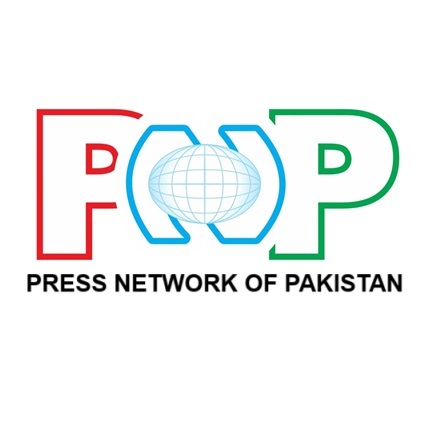
This post has been submitted by our group of interns. PNP Internship Program is an exciting career opportunity for Pakistani university students to get hands-on valuable experience required in national and international job market.
In order to ensure transparency, accuracy and accountability to our readership, please report whenever any error found or need to clarify /correct the post.

